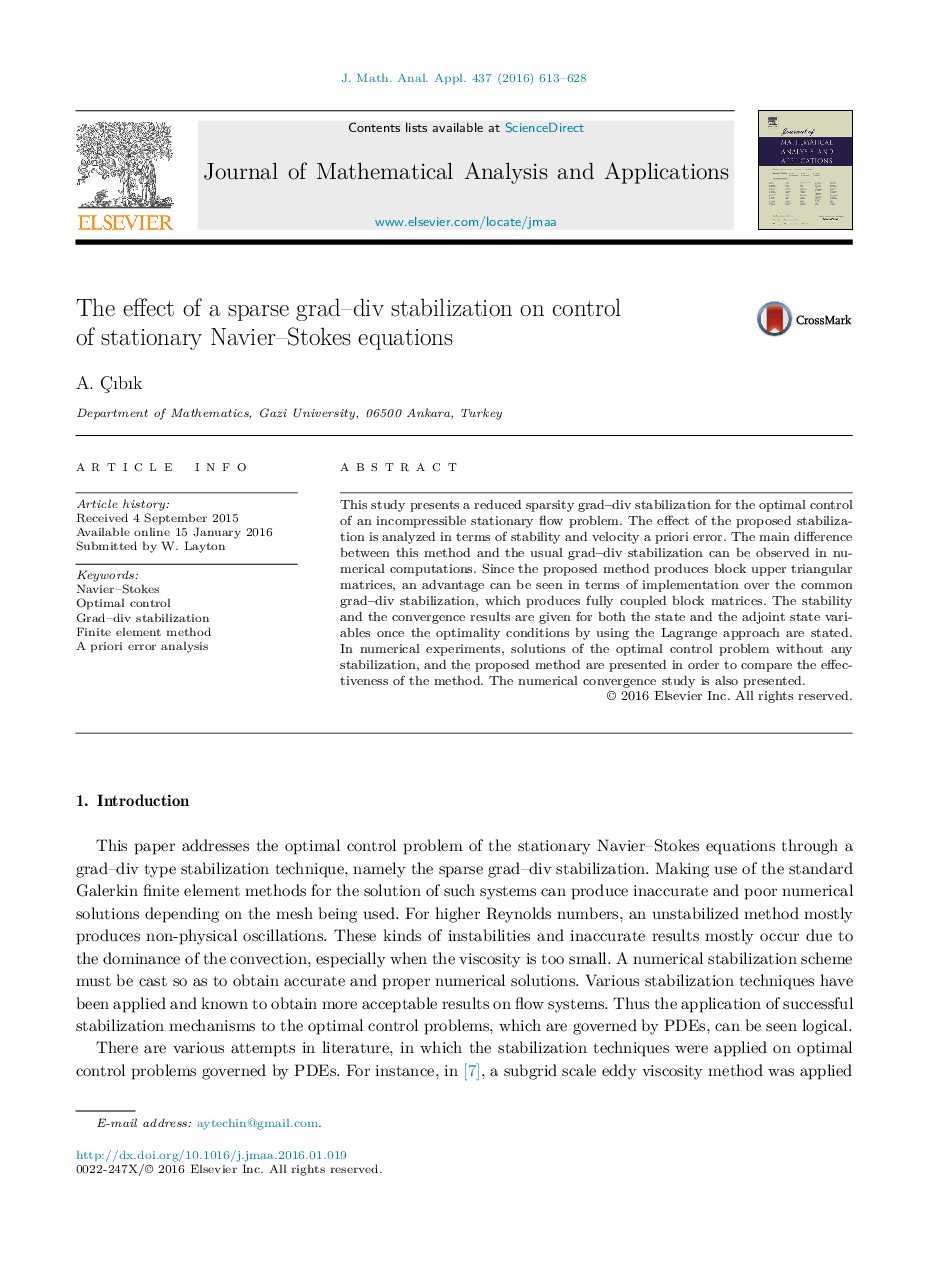| Article ID | Journal | Published Year | Pages | File Type |
|---|---|---|---|---|
| 4614476 | Journal of Mathematical Analysis and Applications | 2016 | 16 Pages |
This study presents a reduced sparsity grad–div stabilization for the optimal control of an incompressible stationary flow problem. The effect of the proposed stabilization is analyzed in terms of stability and velocity a priori error. The main difference between this method and the usual grad–div stabilization can be observed in numerical computations. Since the proposed method produces block upper triangular matrices, an advantage can be seen in terms of implementation over the common grad–div stabilization, which produces fully coupled block matrices. The stability and the convergence results are given for both the state and the adjoint state variables once the optimality conditions by using the Lagrange approach are stated. In numerical experiments, solutions of the optimal control problem without any stabilization, and the proposed method are presented in order to compare the effectiveness of the method. The numerical convergence study is also presented.
